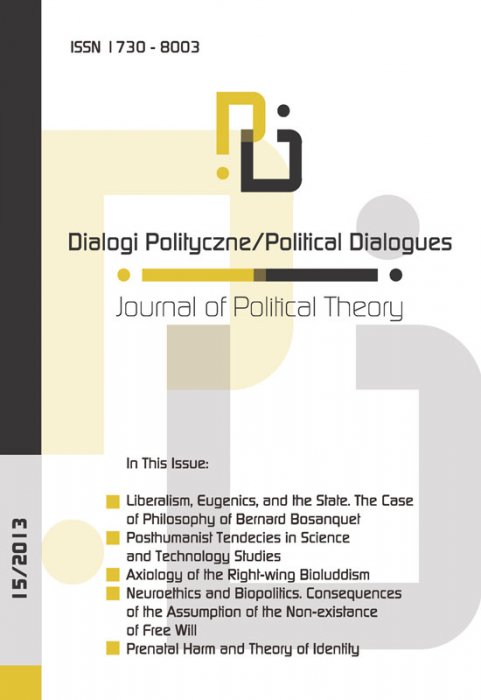Prenatal Harm and Theory of Identity
DOI:
https://doi.org/10.12775/DP.2013.005Palabras clave:
theory of identity, prenatal harm, abortion law, women’s rights, non-identity problem, the interest view, essentialism causality, Different People Choice, Same People ChoiceResumen
Although in many Western legal regimes women have a right to terminate pregnancy on request at the relatively late stage of gestational age of the foetus, a remarkable paradigm shift in law concerning women’s reproductive freedom and status of the foetus has been noticed since the 1990s. This evolution has occurred outside the abortion framework in a form of wrongful life suits, preconception and prenatal torts or foetal homicide laws. According to some commentators it has created a conspicuous discrepancy between status of the foetus in the abortion context and its standing in other branches of law, particularly in so-called prenatal harm lawsuits. In this paper I am going to analyse theoretical background that bear prenatal injury lawsuits out. The core thesis of the paper is the contention that any adjudication in prenatal harm lawsuits presupposes some theory of identity. This in turn means that plausibility of these adjudications
depends not only on their consistency with our moral intuitions but also on the plausibility of a given background theory that endorses these adjudications. I identify the theory of causality as the main background theory if the concept of prenatal harm and argue that it is structurally unable to justify it; what is theory of identity.
Citas
McMahan J. (2004). Wrongful Life: Paradoxes in the Morality of Causing People to Exist, [in:] J. Harris (ed.), Bioethics, Oxford University Press, New York, p. 445-475.
McMahan J. (2002). The Ethics of Killing. Problems at the Margins of Life, Oxford University Press, New York.
Parfit D. (1987). Reasons and Persons, Oxford University Press, New York.
Steinbock B. (2011). Life Before Birth. The Moral and Legal Status of Embryos and Fetuses, Oxford University Press, New York.
Descargas
Publicado
Cómo citar
Número
Sección
Stats
Number of views and downloads: 760
Number of citations: 0



